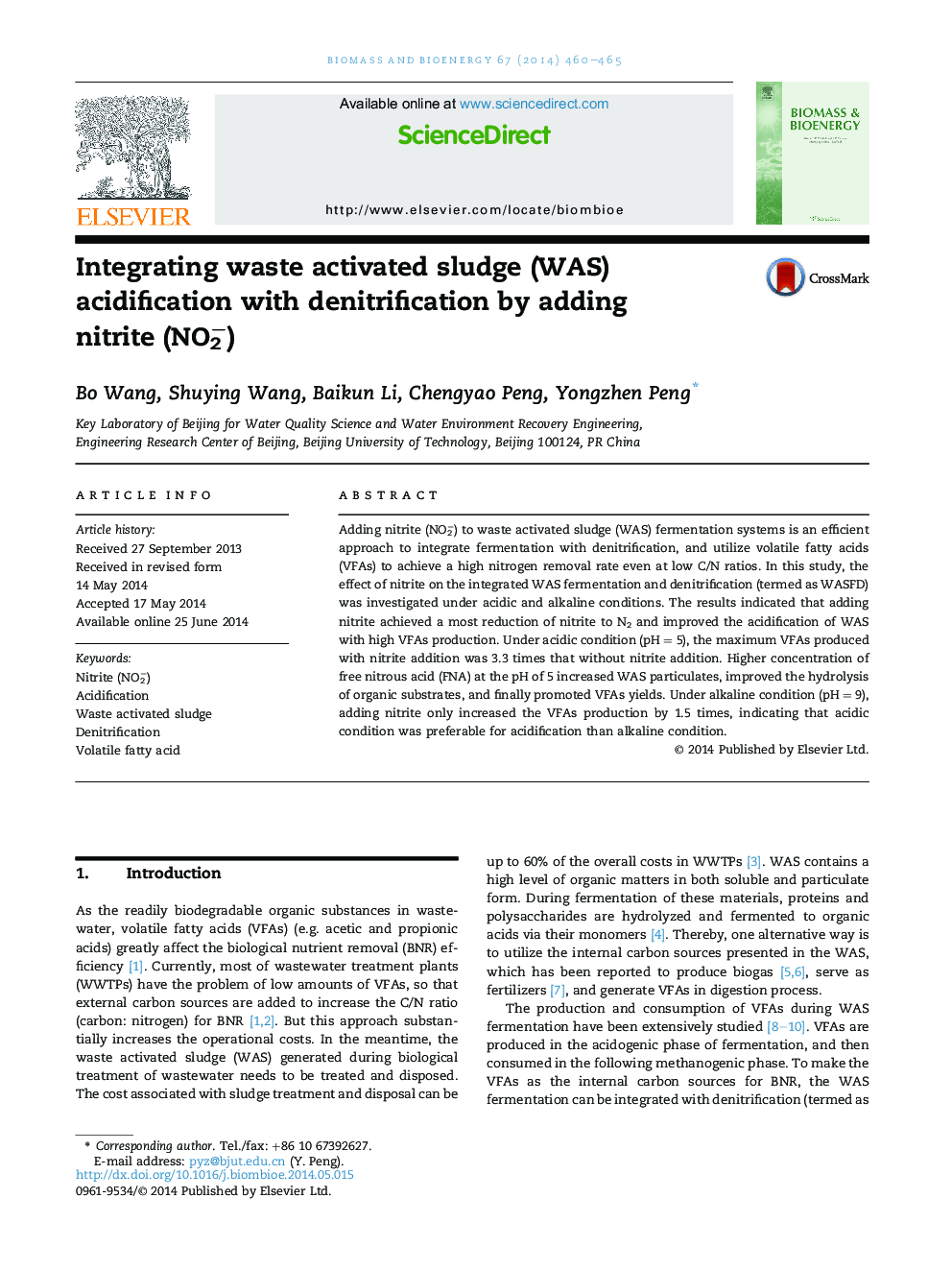| Article ID | Journal | Published Year | Pages | File Type |
|---|---|---|---|---|
| 7064617 | Biomass and Bioenergy | 2014 | 6 Pages |
Abstract
Adding nitrite (NO2â) to waste activated sludge (WAS) fermentation systems is an efficient approach to integrate fermentation with denitrification, and utilize volatile fatty acids (VFAs) to achieve a high nitrogen removal rate even at low C/N ratios. In this study, the effect of nitrite on the integrated WAS fermentation and denitrification (termed as WASFD) was investigated under acidic and alkaline conditions. The results indicated that adding nitrite achieved a most reduction of nitrite to N2 and improved the acidification of WAS with high VFAs production. Under acidic condition (pHÂ =Â 5), the maximum VFAs produced with nitrite addition was 3.3 times that without nitrite addition. Higher concentration of free nitrous acid (FNA) at the pH of 5 increased WAS particulates, improved the hydrolysis of organic substrates, and finally promoted VFAs yields. Under alkaline condition (pHÂ =Â 9), adding nitrite only increased the VFAs production by 1.5 times, indicating that acidic condition was preferable for acidification than alkaline condition.
Related Topics
Physical Sciences and Engineering
Chemical Engineering
Process Chemistry and Technology
Authors
Bo Wang, Shuying Wang, Baikun Li, Chengyao Peng, Yongzhen Peng,
